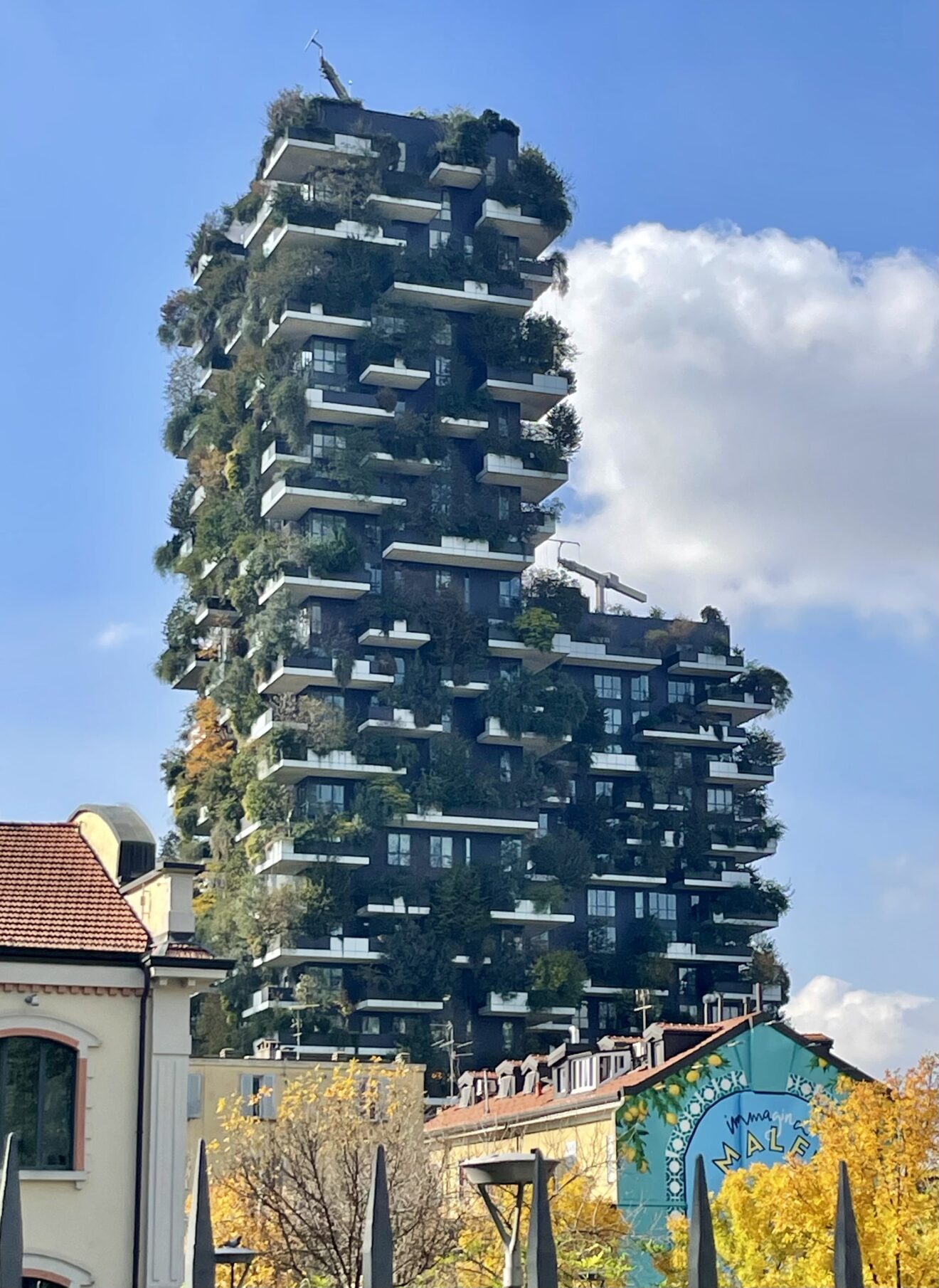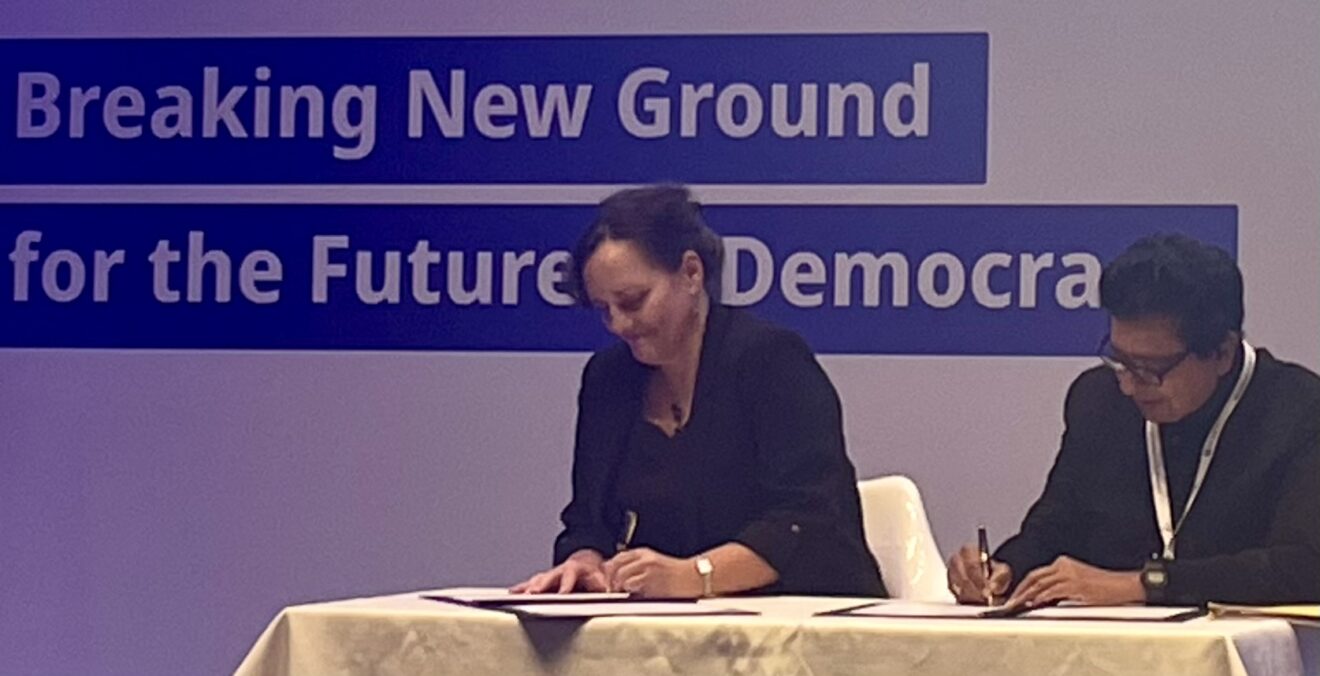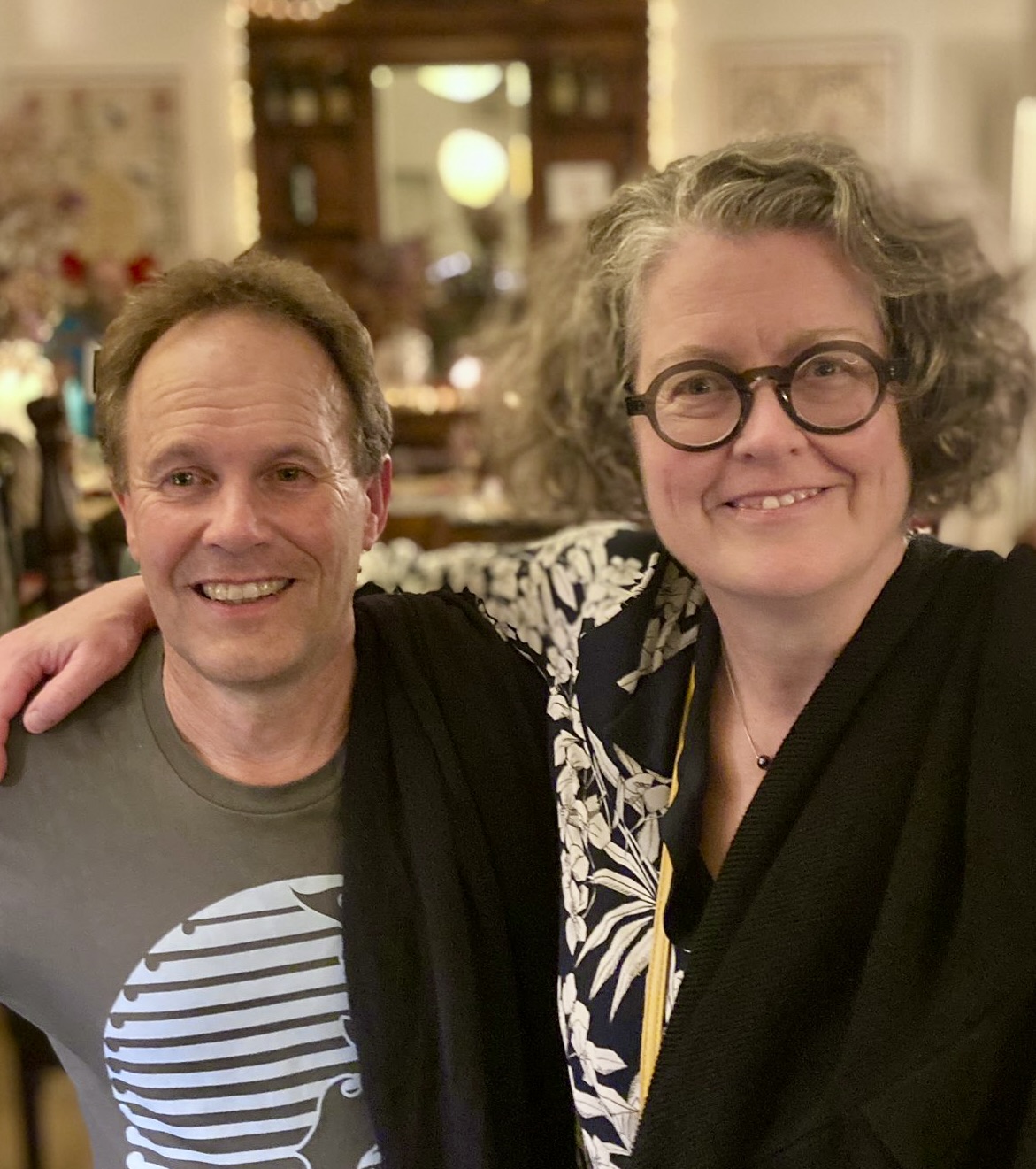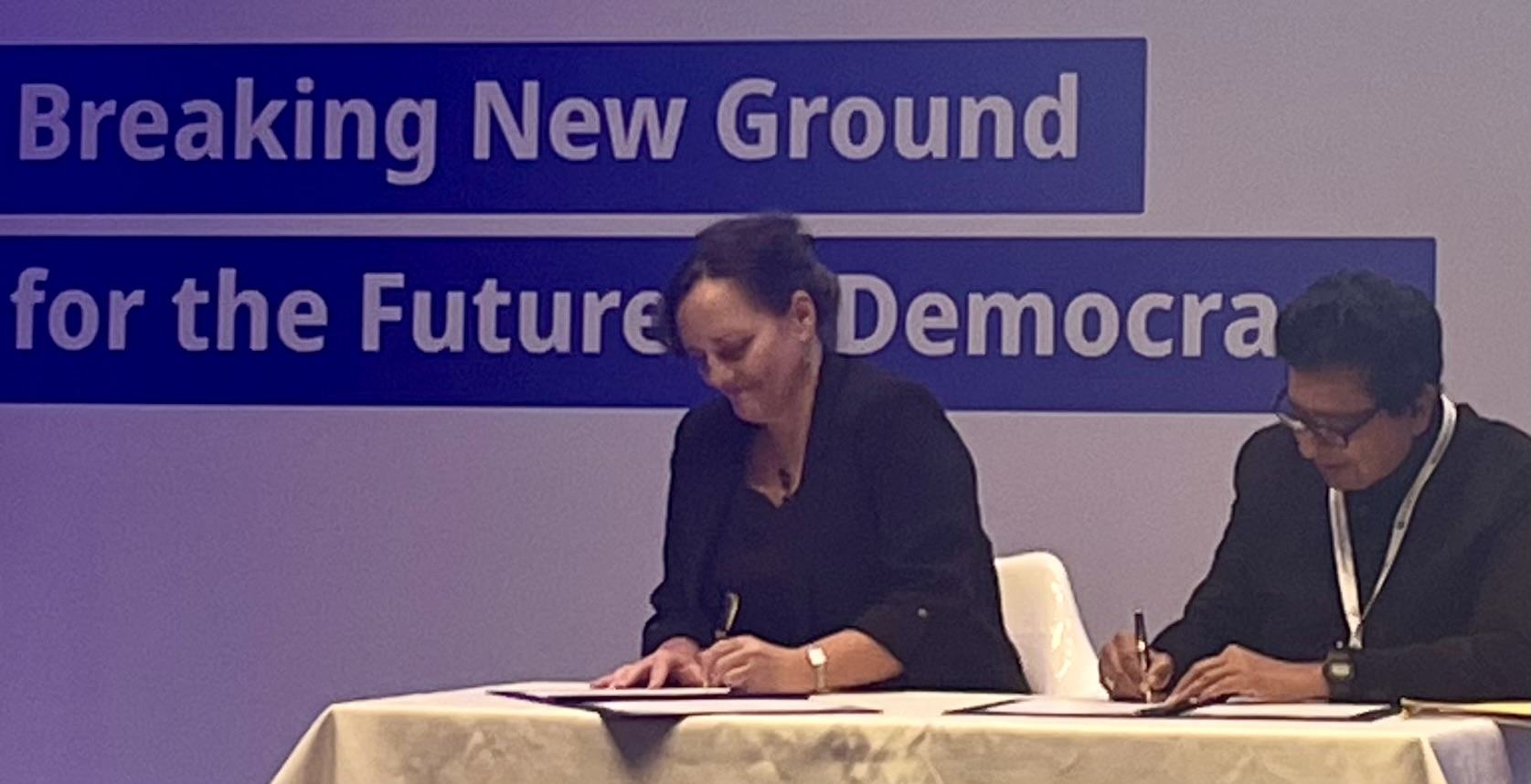Two days of sober discussion about the challenges facing democracies around the world may not be everybody’s idea of fun. However, it was a relief to see that many OECD member states are willing to acknowledge that democracy is in trouble and slightly reassuring to hear from serious politicians, officials, academics and civil society representatives who are trying to do something about it.

So I considered attending the 2024 OECD Global Forum on Building Trust and Reinforcing Democracy in Milan both a privilege and a pleasure.
Part of the pleasure, of course, was being in Italy. My partner and I lived there independently in the ’90s and loved returning for a visit. Milan was vibrant and it was great to see that pro-social traditions like the passeggiata have been supported by pedestrianisation and urban development that brings people and nature into the city – including onto high-rise apartments!
Declining trust, increasing polarisation
Welcoming people to the Forum, the President of Lombardy set the tone by noting that new ways of doing democracy were needed to address declining trust, increasing polarisation and an uncertain, complex future. These worrying global trends can be seen in the findings of the 2024 OECD global trust survey.
While NZ rates relatively well on trust compared with other countries, things are not heading in the right direction here either. A 2024 IPSOS study found that:
- Over half of New Zealanders feel that the country is in decline and that our society is broken.
- Two thirds of New Zealanders think the economy is rigged in favour of the rich and powerful.
- Sixty percentage of New Zealanders believe the main divide in NZ is between ordinary citizens and the political and economic elite.
Addressing the challenges
The Forum sessions, which were video recorded, were structured around the main focus areas of the OCED Building Trust and Reinforcing Democracy initiative:
- Tackling disinformation
- Enhancing representation and citizen participation
- Responding to foreign interference
- Governance for the green transition
- Transforming public governance for digital democracy.
My favourite speaker was George Papandreou, the former Greek Prime Minister (see Session 4). He talked about the benefits of giving real power to the people and investing in public spaces for learning and deliberation. His musings got me wondering about whether the OECD agenda goes far enough: do we need deeper reforms, not just add-ons to the dominant electoral representative model? For example, should we be creating more lottocratic institutions to balance electoral representative ones? John Gastil discussed this idea while visiting NZ in 2024, and Yale’s Hélène Landemore argues persuasively for these approaches in Open Democracy.
Another highlight was the OECD’s strengthened partnership with the Open Government Partnership (OGP), marked by a formal memorandum of understanding. This is encouraging for Trust Democracy, as we’ve long supported the OGP.


NZ complacency?
However, despite NZ’s proud democratic history, recent governments have shown little interest in using our OGP membership to help address issues such as those highlighted in the IPSOS study. Do our political elite really think that everything is fine with our democracy? Publicly at least, the standard answer is that NZ is recognised as having “one of the most open, transparent and accountable systems of government”. This is the sort of government-centric and complacent view that might explain why no NZ elected representatives or officials attended the OECD Forum. On a more encouraging note, it was good to learn that Coalition Government ministers have rejected advice from officials that NZ withdraw from the OGP.
The privilege and pleasure of friendship
Finally, my No. 1 highlight in Milan was the simple pleasure of sharing a meal at Tram Tram Milano with an old friend and colleague, Joanne Caddy. Joanne works at the OECD but came to work at the NZ State Services Commission on a 1-year secondment in the mid-2000s to help develop the Guide to Online Participation, which still reads well. We met again in 2008 at an OECD workshop that informed the publication Focus on Citizens: Public Engagement for Better Policy and Services. I can tell you that there was plenty to savour about getting reacquainted after a 16-year hiatus!


